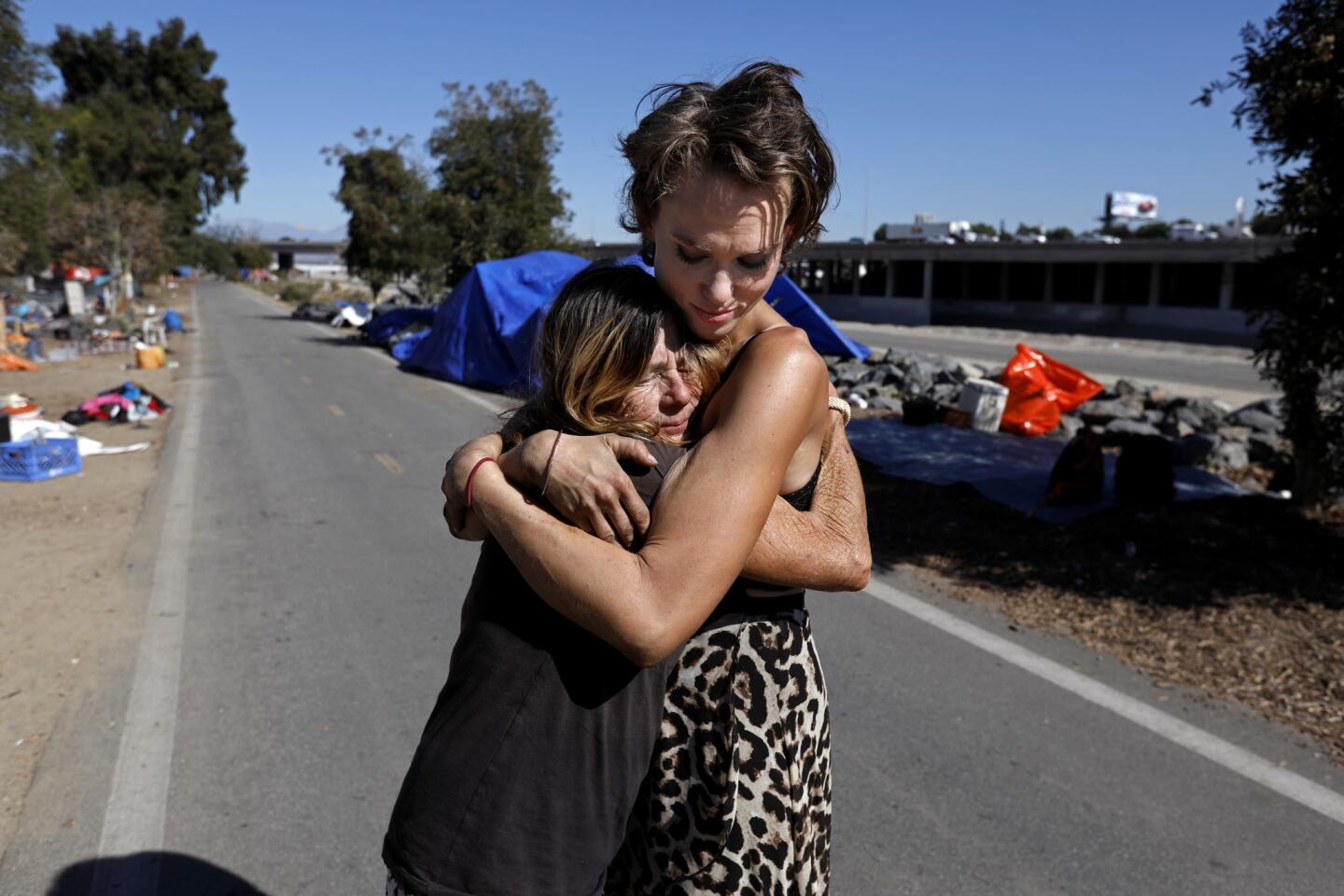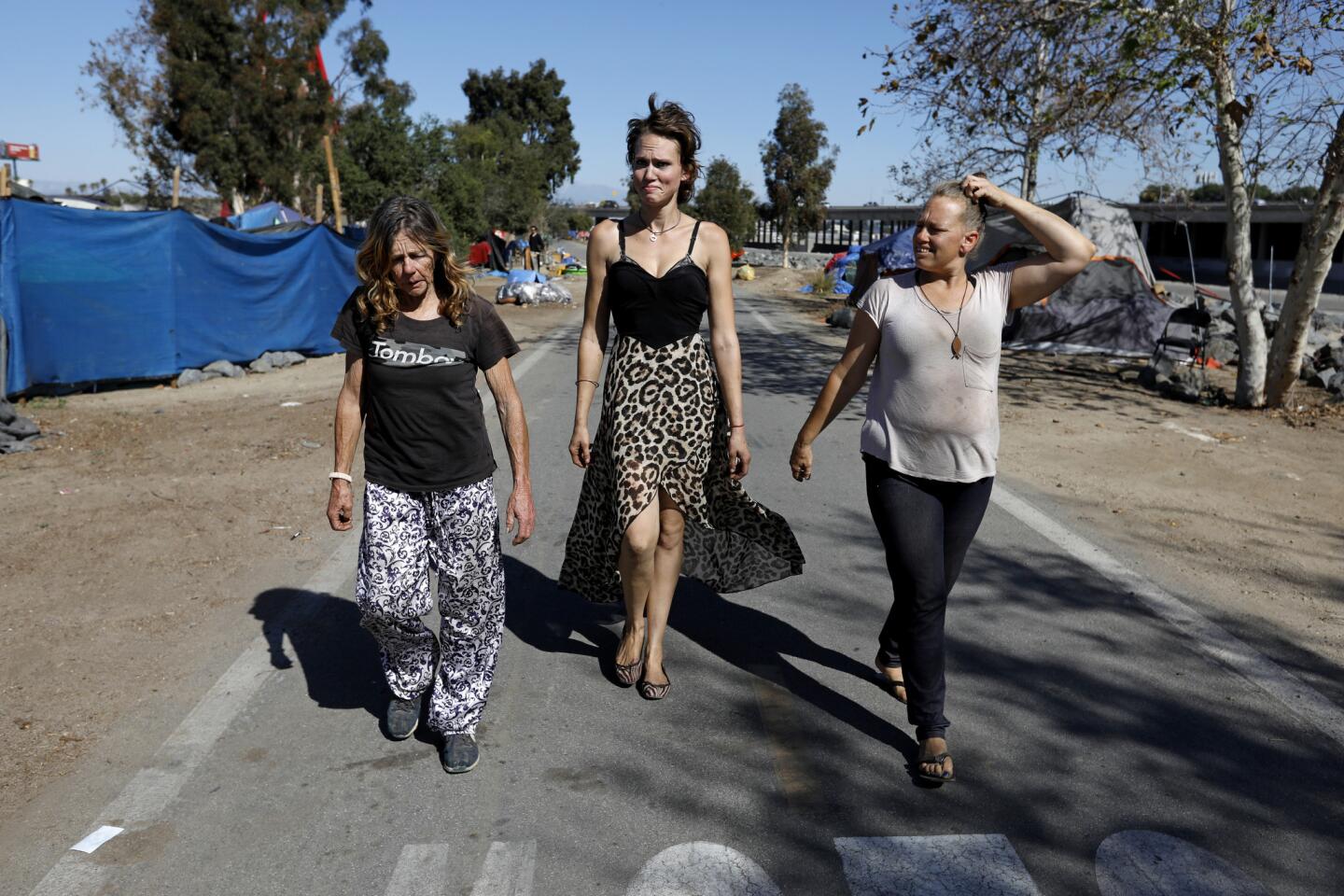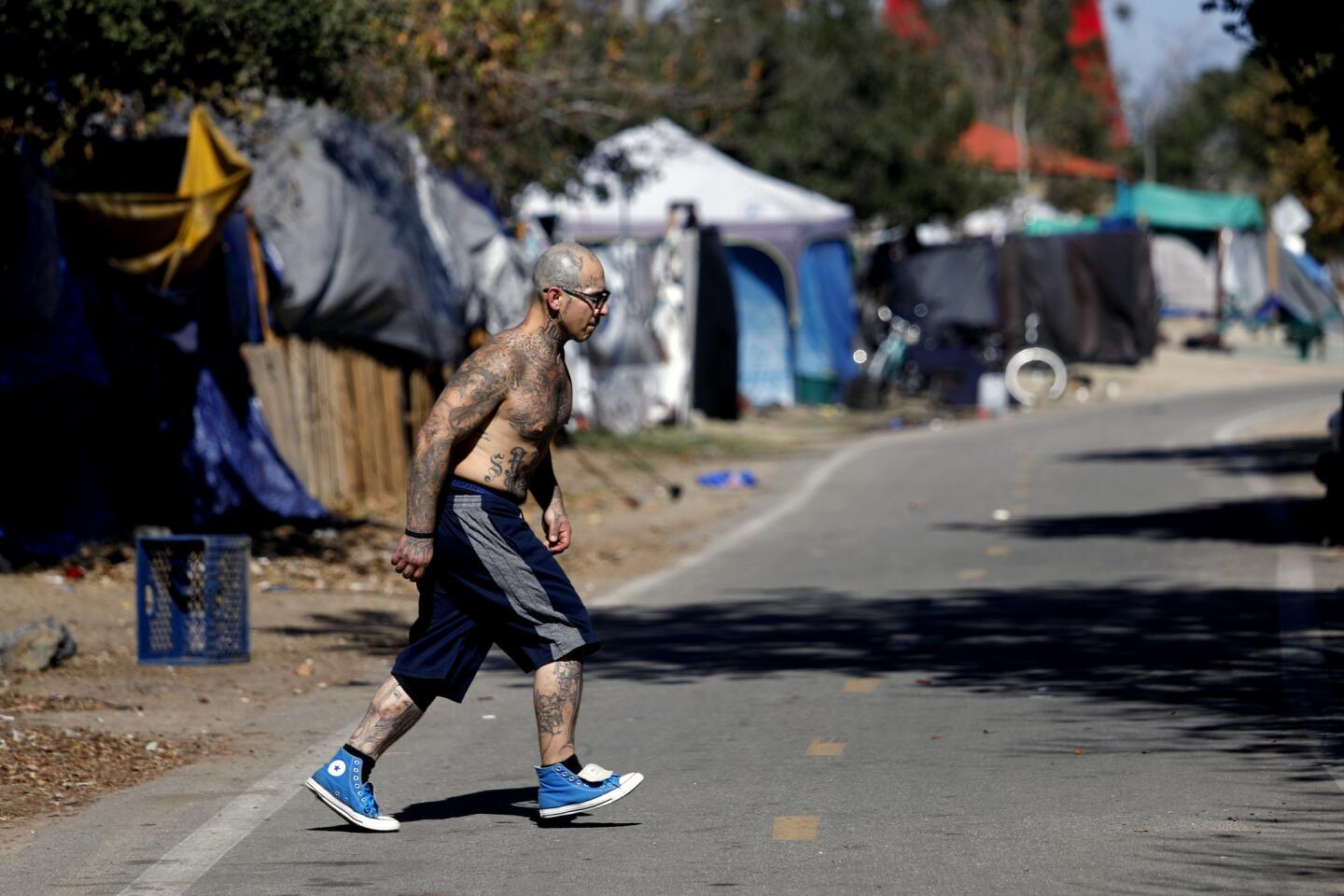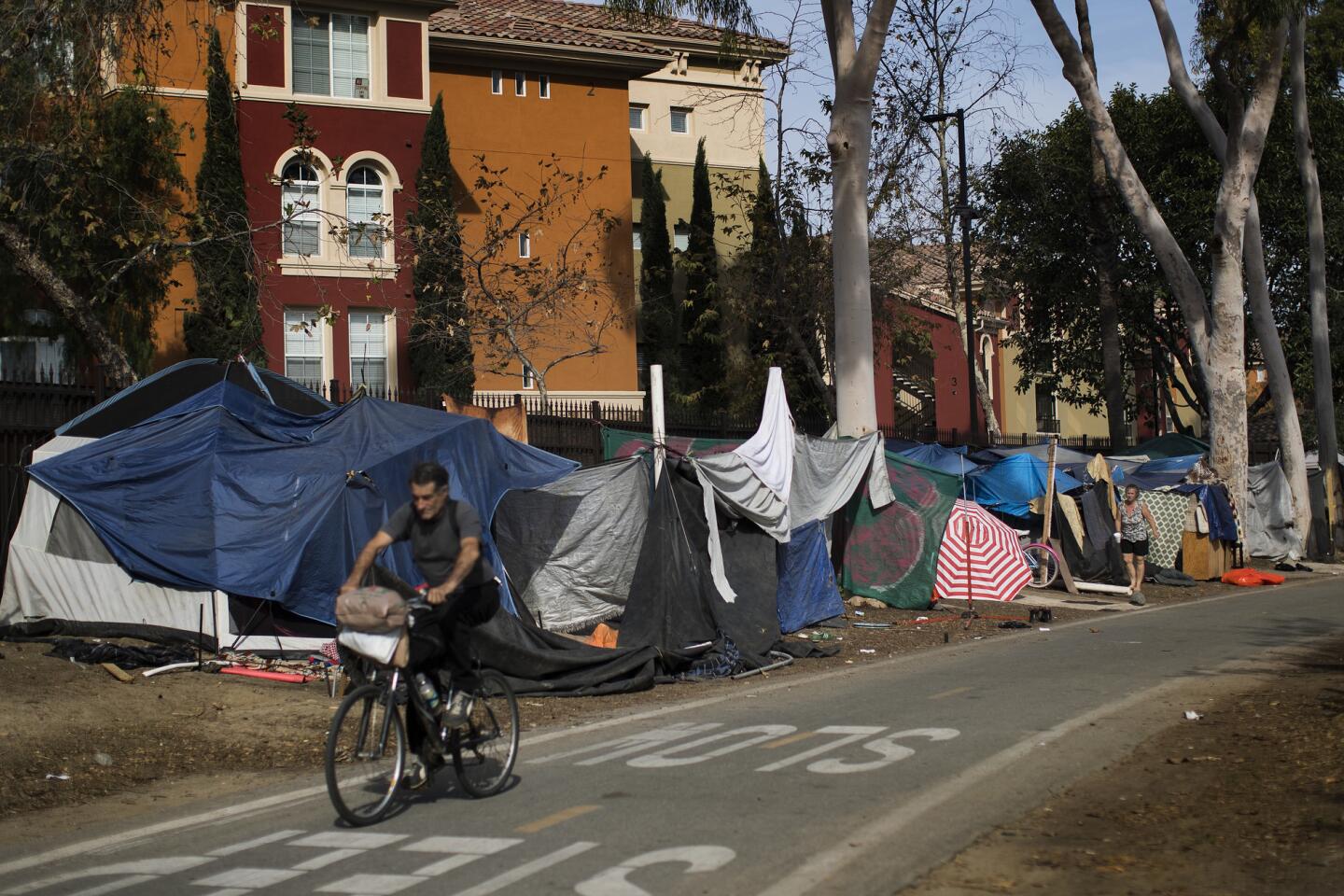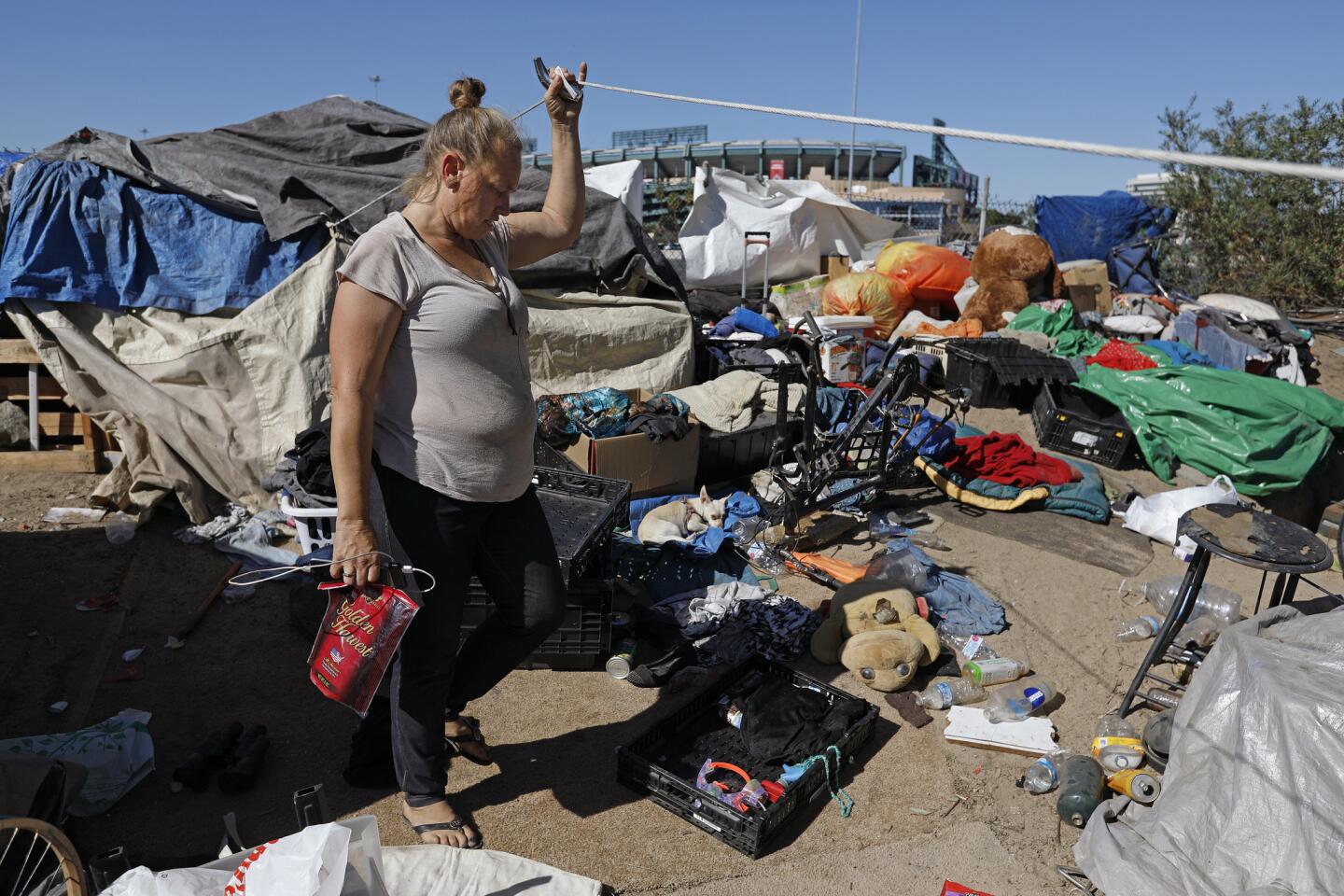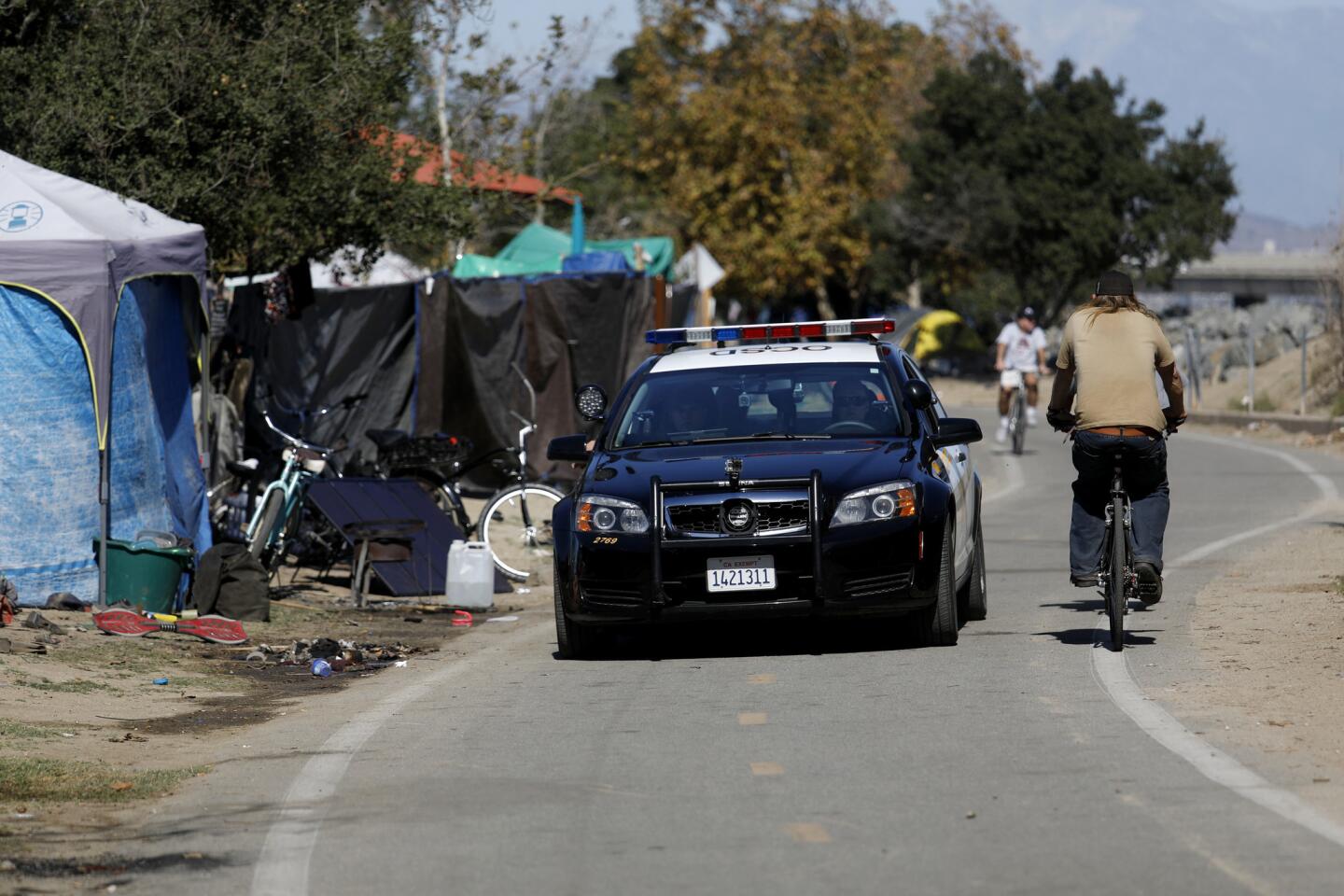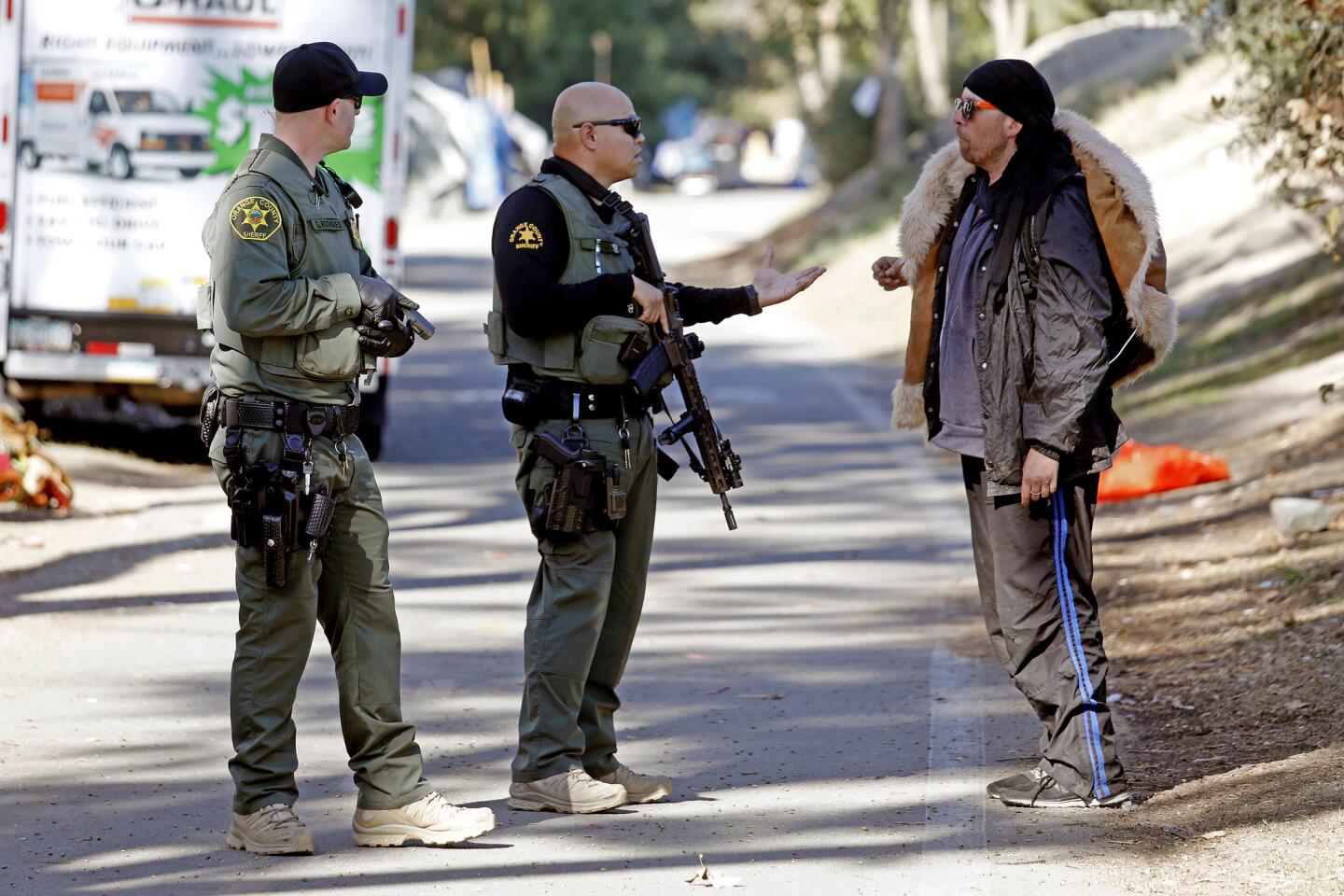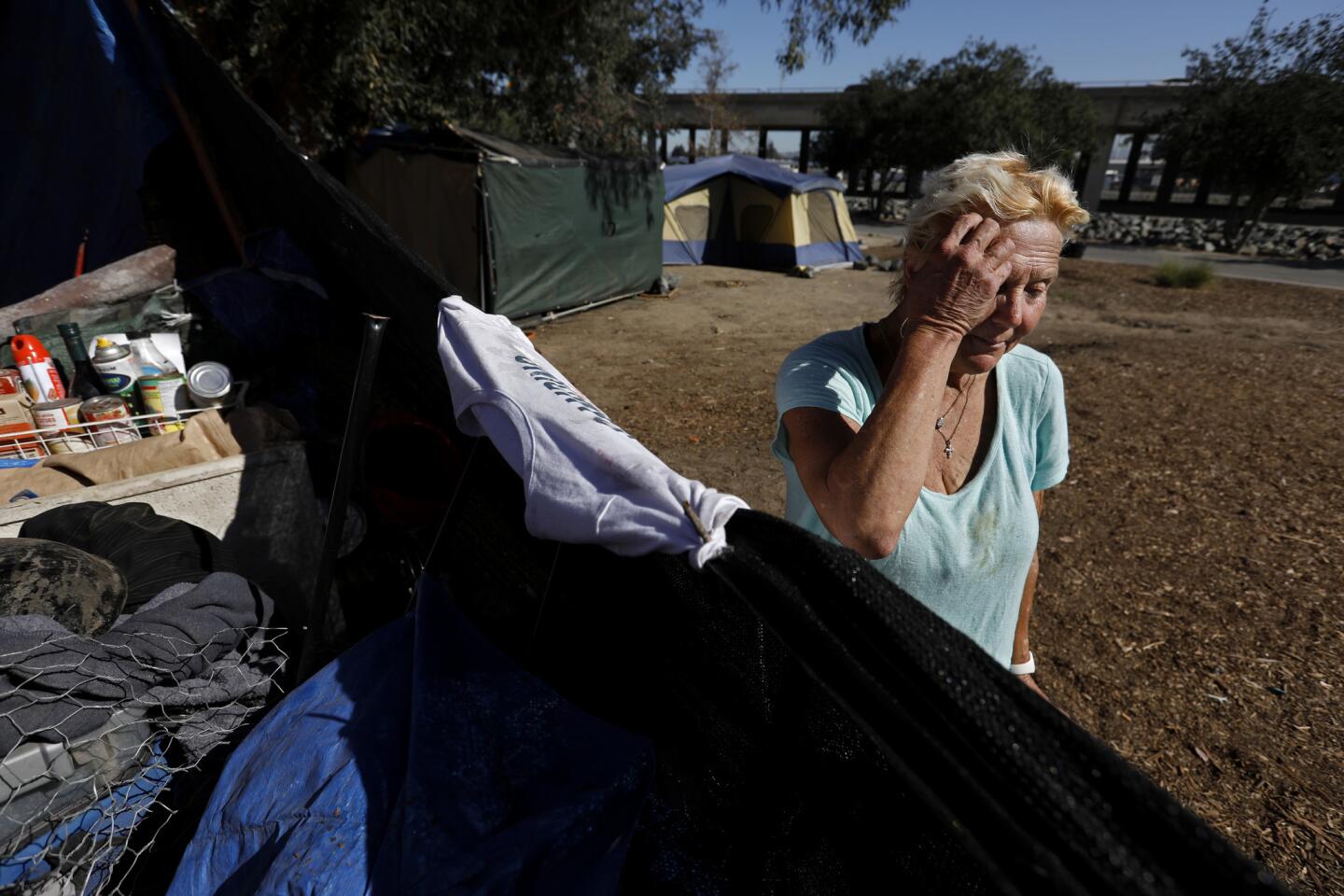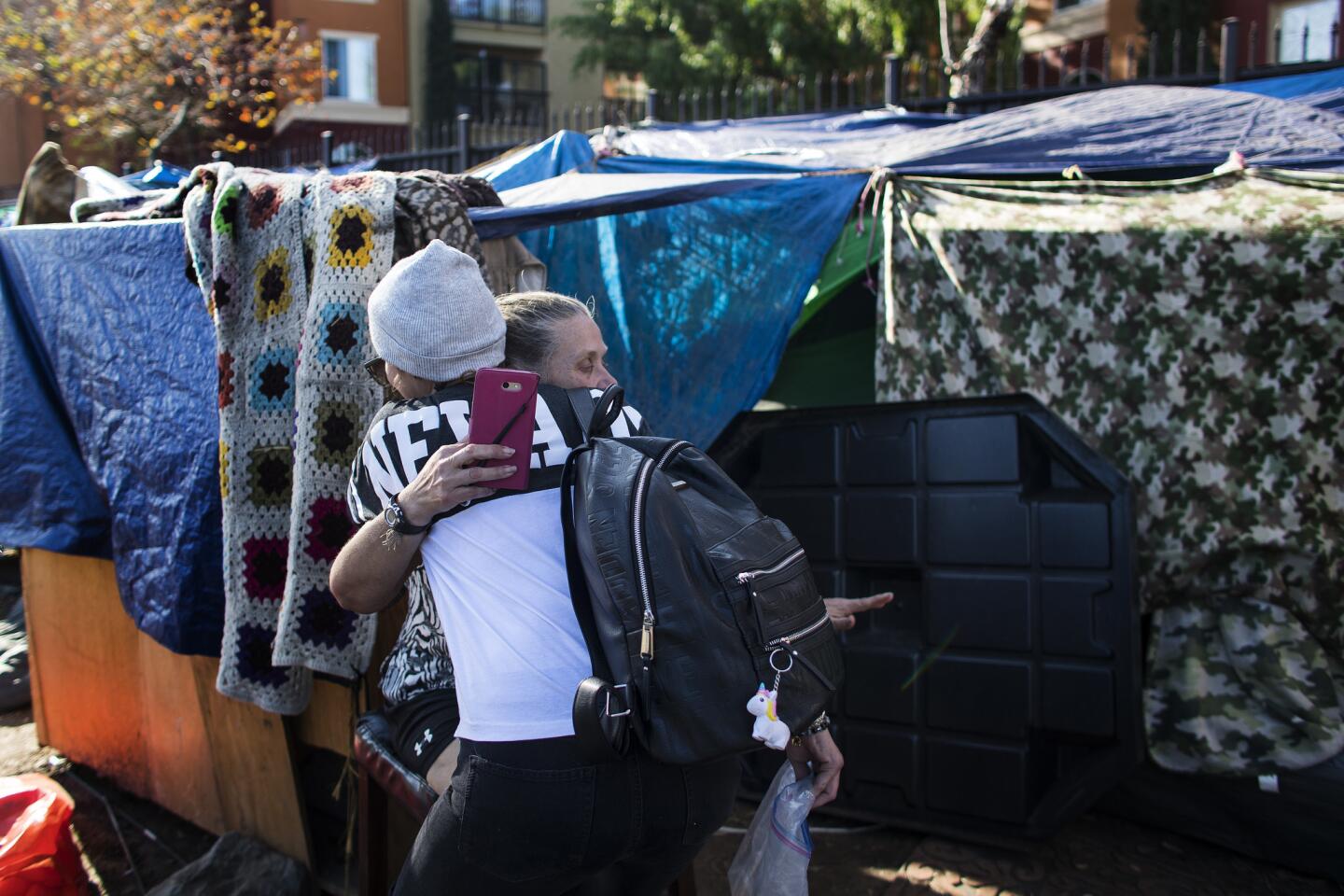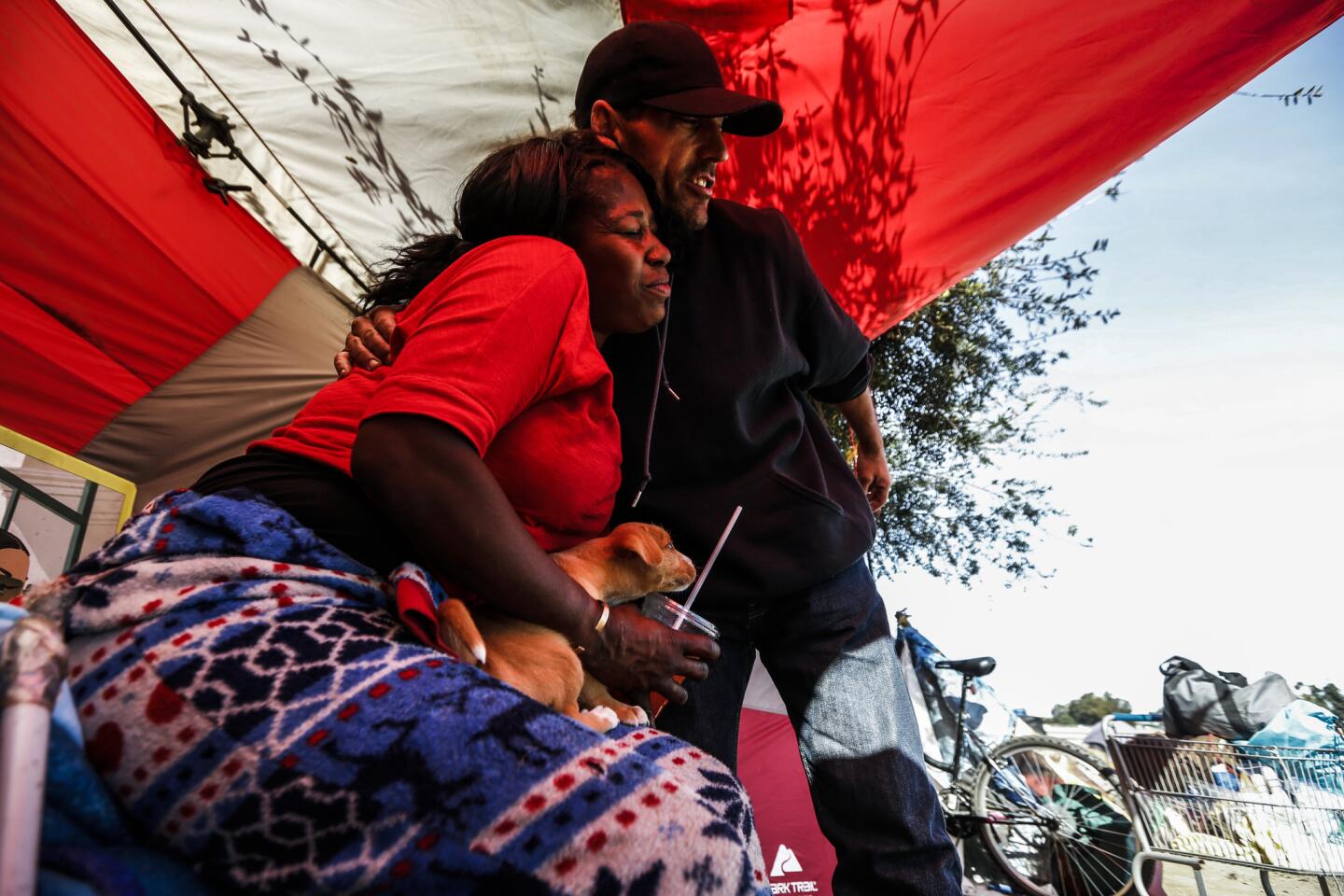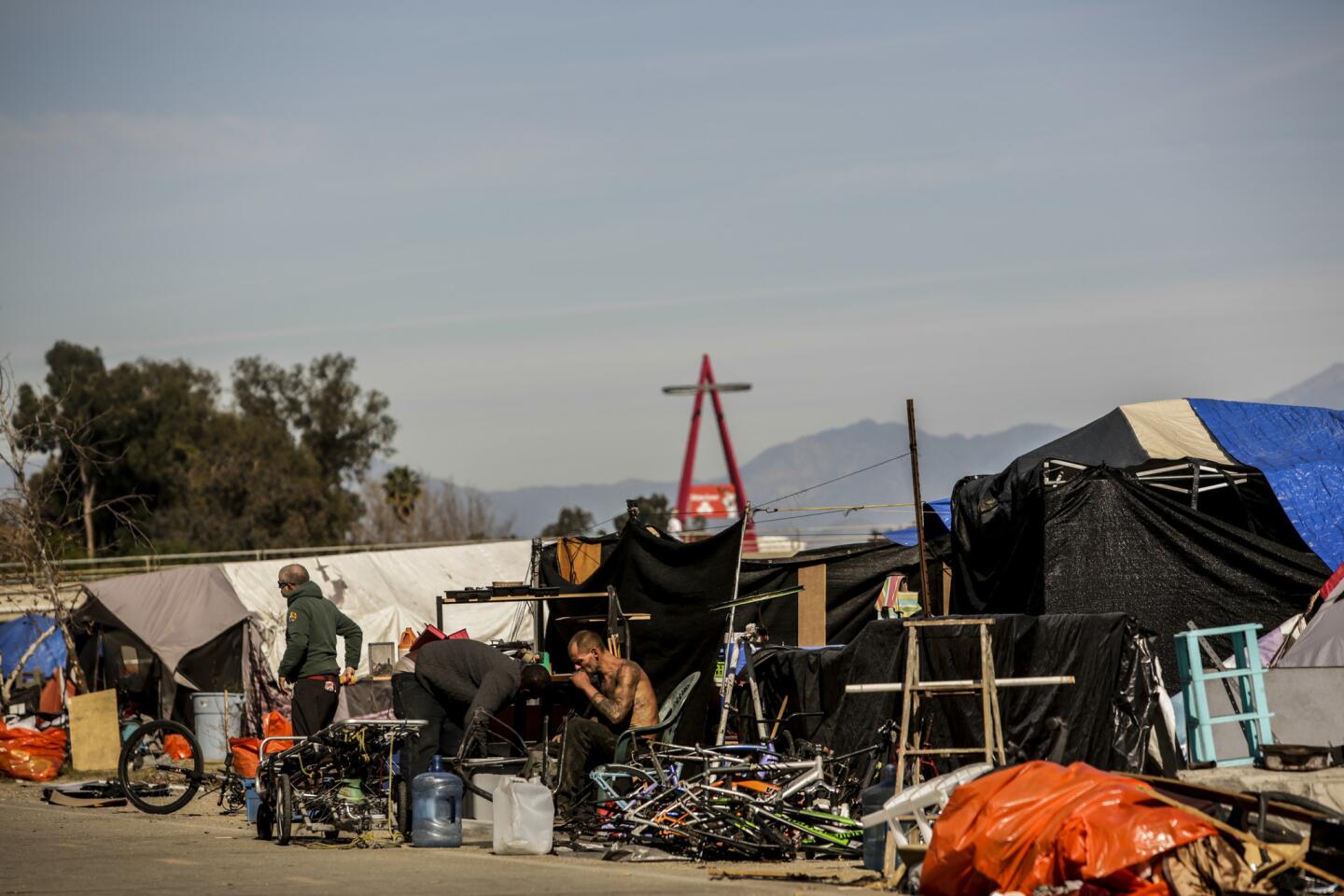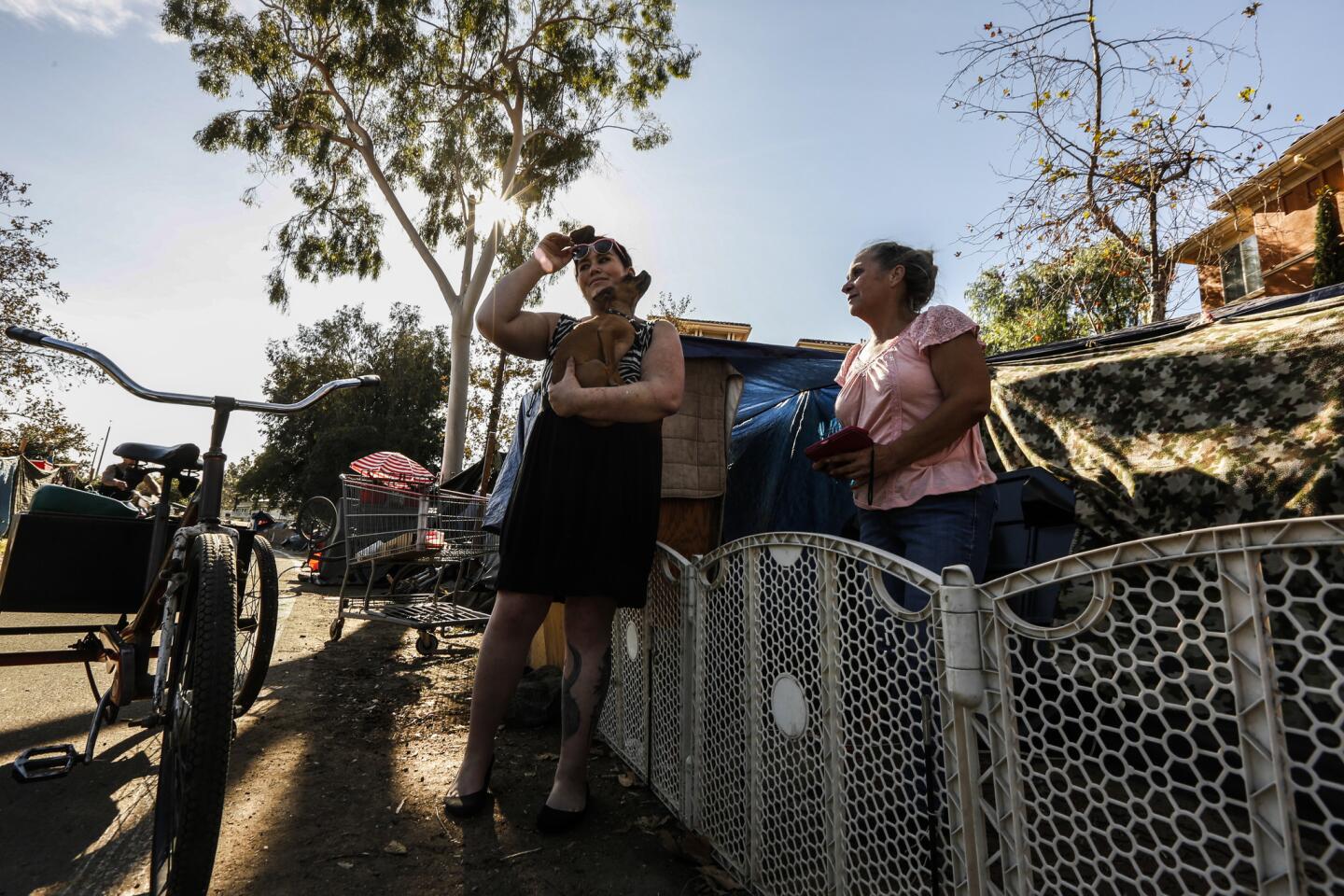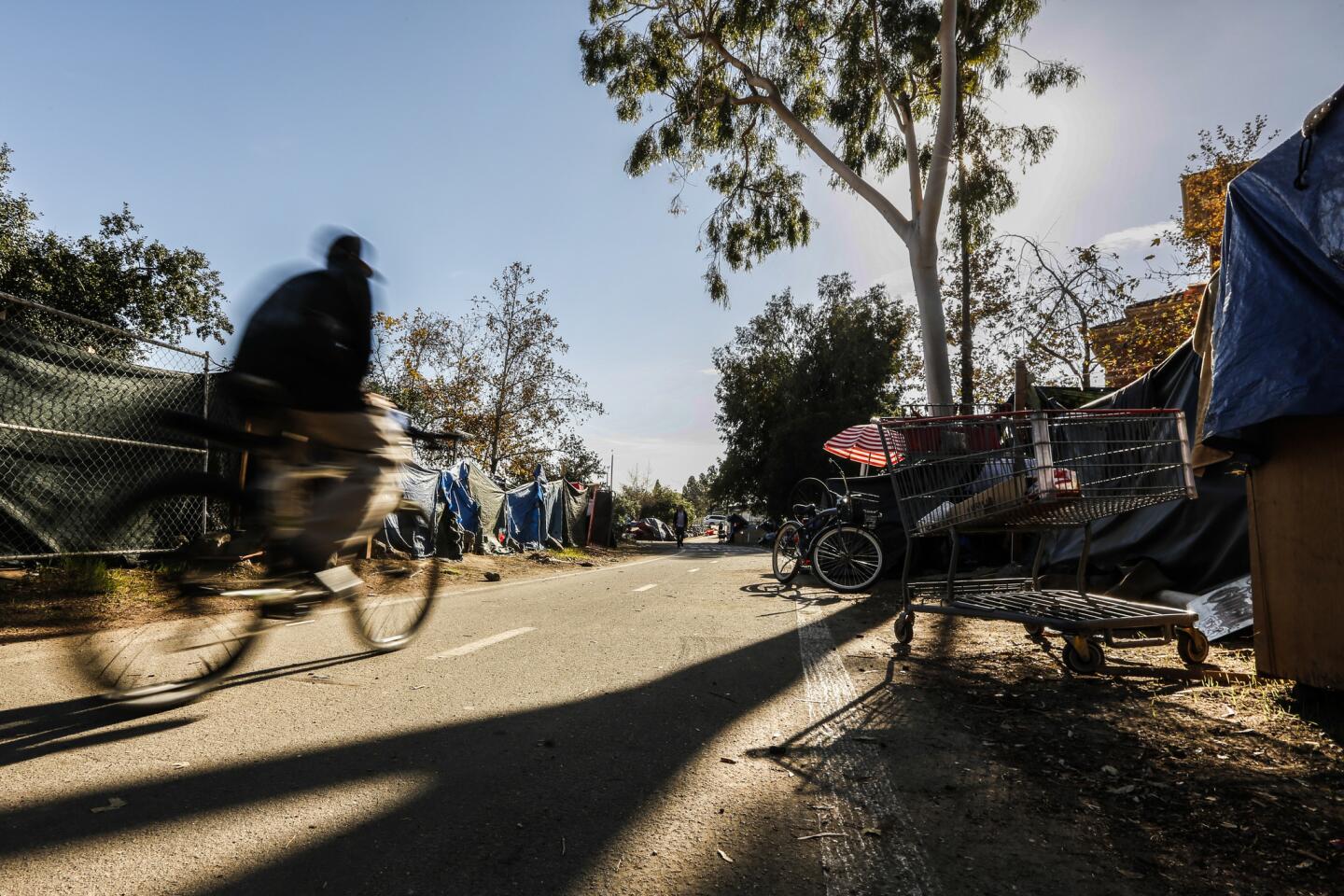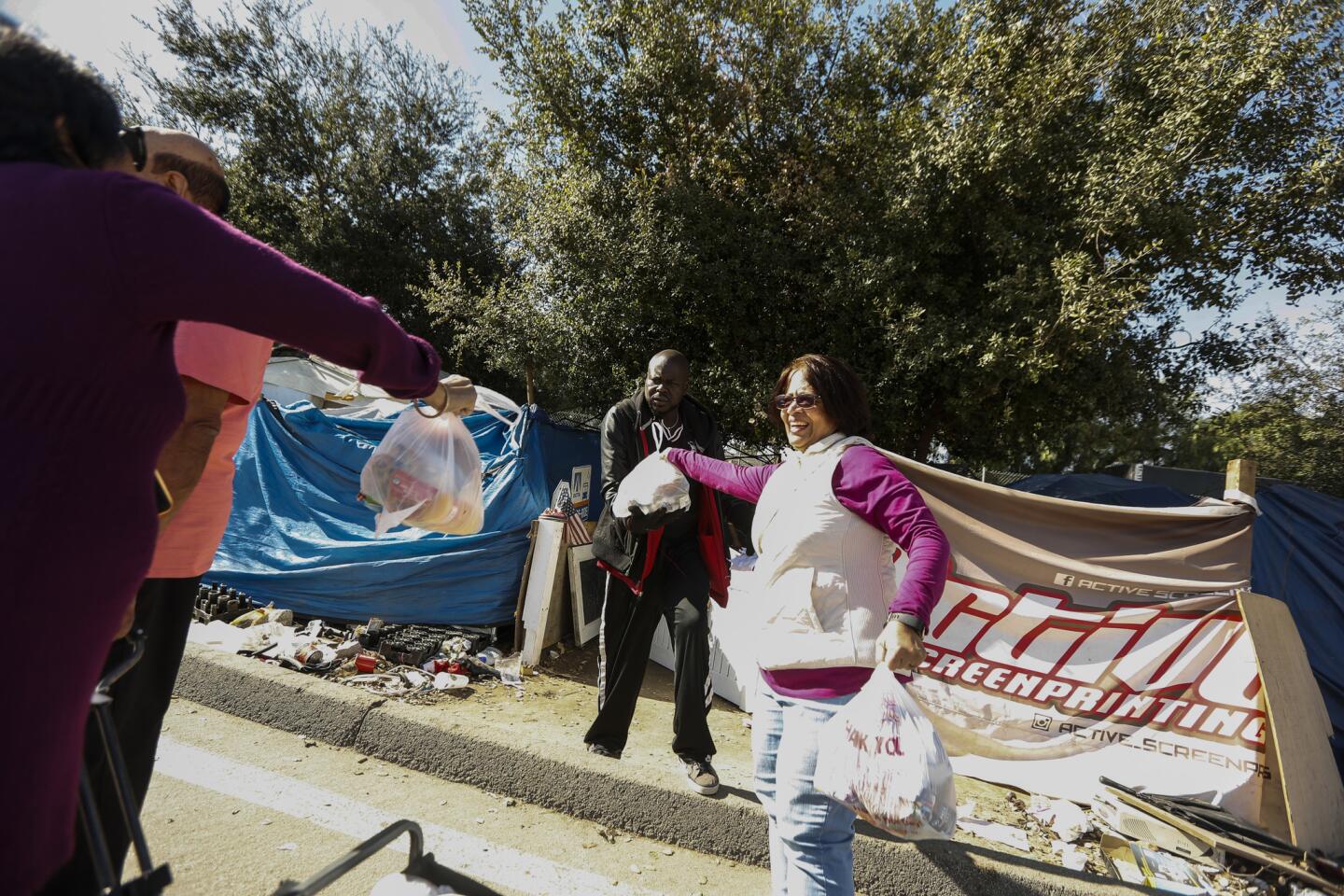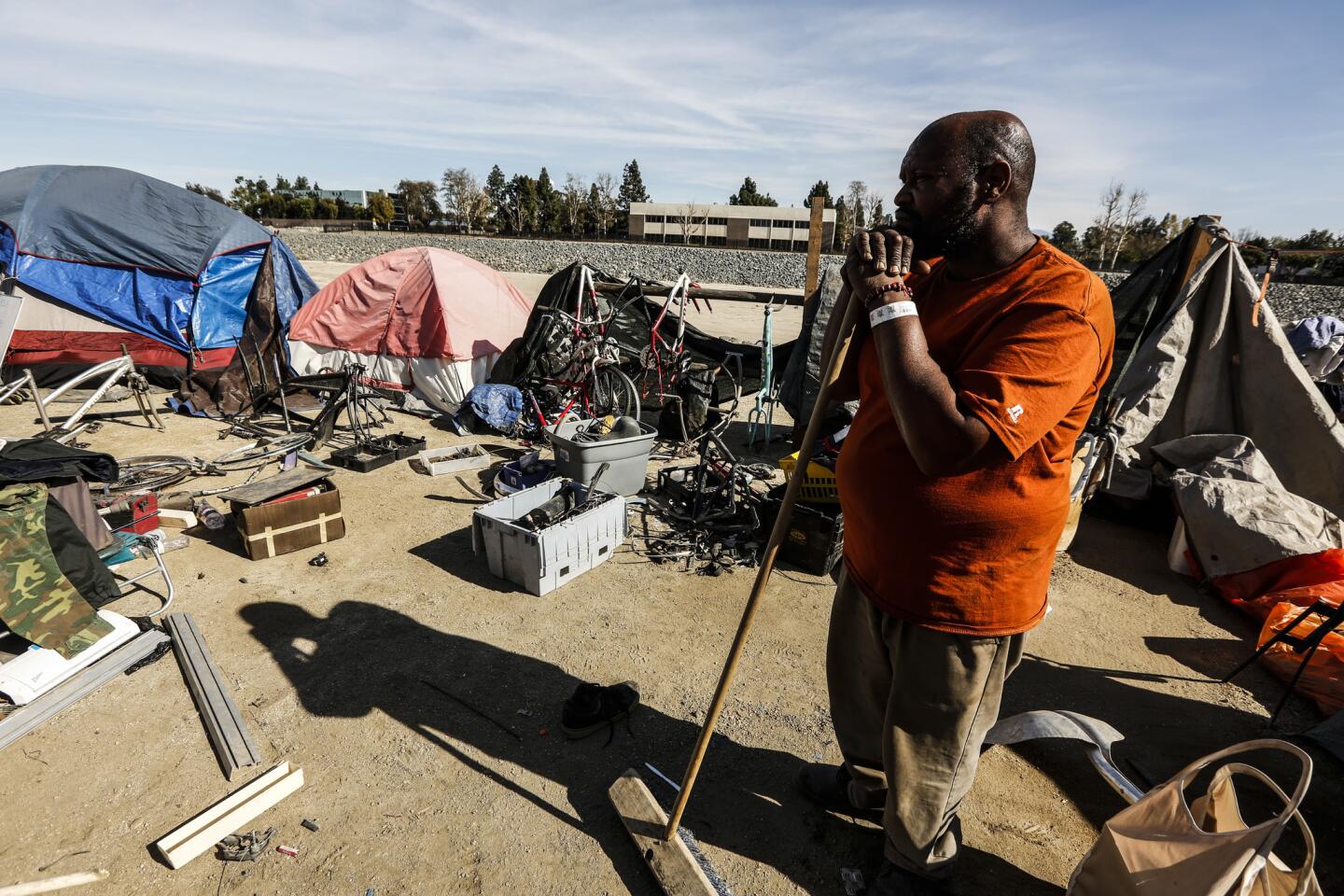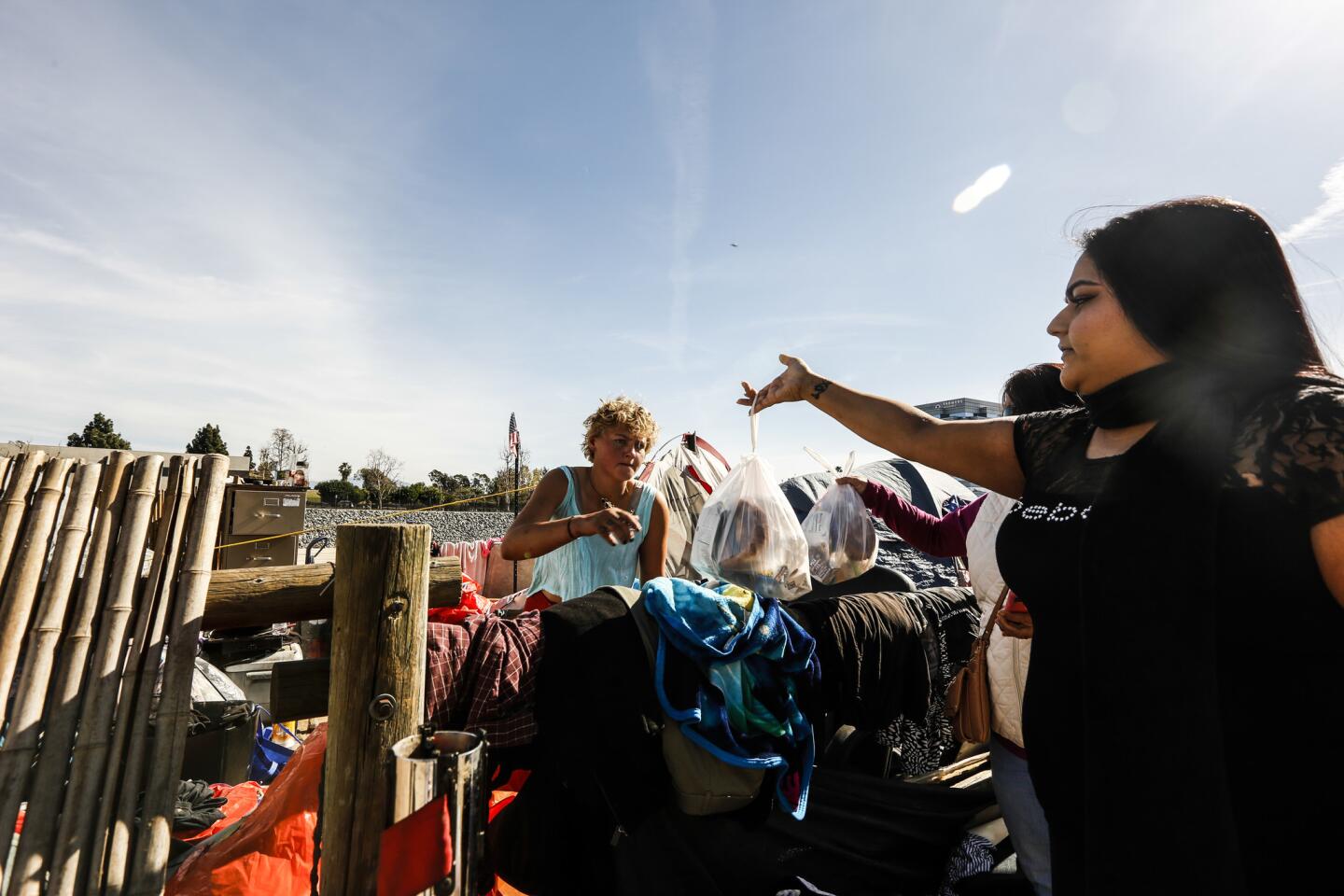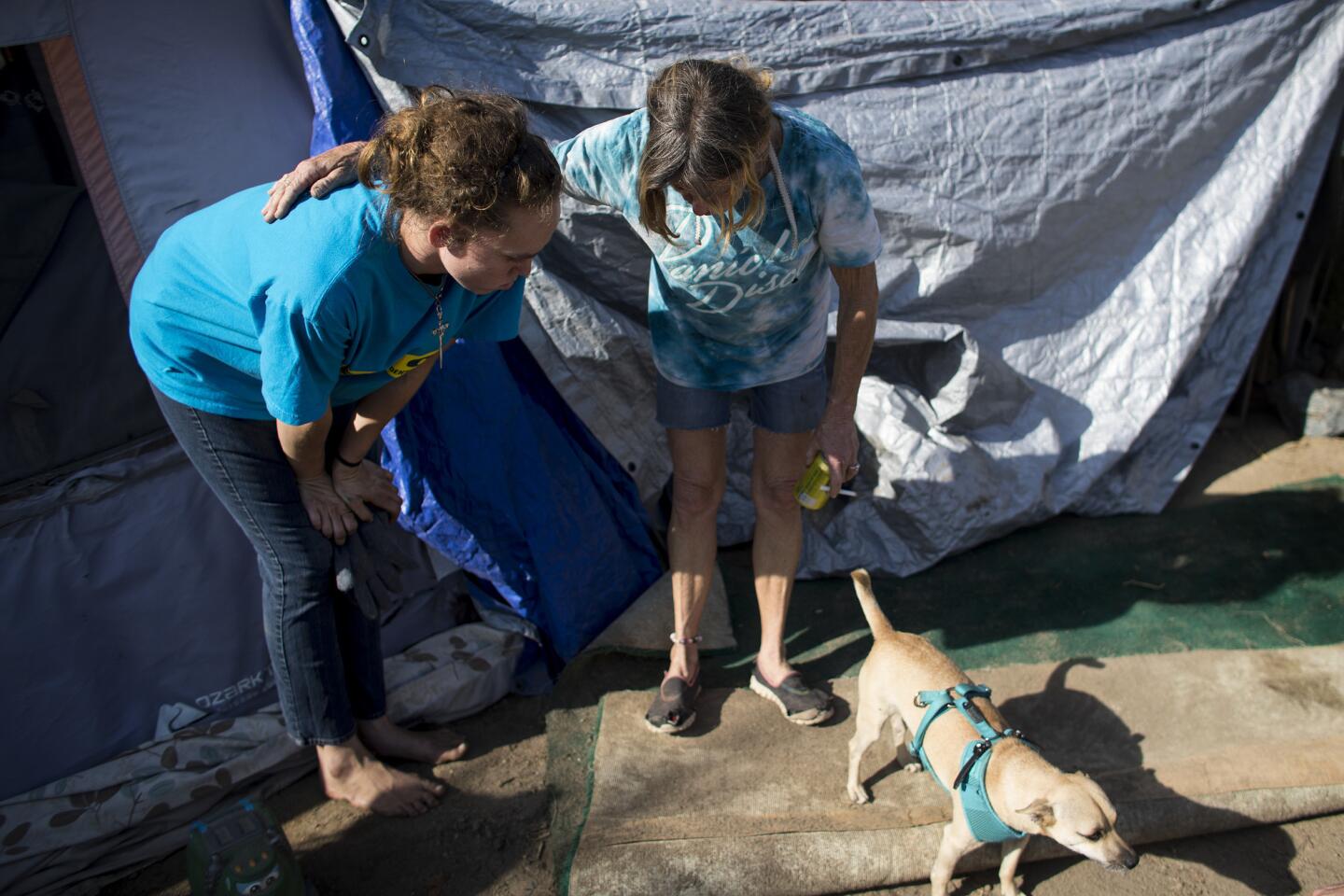Frustrated judge demands O.C. find shelter for homeless being evicted from camps
- Share via
Orange County’s decision to remove hundreds of homeless people from encampments along the Santa Ana River has turned into a legal showdown over how the affluent region treats some of its most needy citizens, a battle being watched by other areas struggling with growing transient populations.
U.S. District Judge David Carter on Tuesday demanded that Orange County officials, cities and homeless advocates collaborate to find shelter for hundreds of people who have been living in the camps, saying he would survey the area for himself on Wednesday.
Carter last week granted a temporary restraining order barring Orange County sheriff’s deputies from arresting homeless people who refuse to leave, stalling what has been an aggressive effort to clear out the encampments that stretch from Fountain Valley to Anaheim.
That order will stand until public officials can identify an alternative place to house those living along the river trail. The goal, the judge said, is to create a temporary answer that can eventually be fashioned into a long-term housing solution.
Carter said he doesn’t want homeless people who leave the river trail for the streets to be cited, put in jail for a day and then released only to be cited again.
“I’m tired of the paperwork and the ‘we can’t get it done’ nonsense,” Carter said. “I’m looking for solutions now.”
The outcome in Orange County will add to an evolving body of case law as courts across the country seek to balance the constitutional rights of homeless people and the interests of government agencies in protecting the public health and safety.
As cities have responded to burgeoning homeless encampments with laws prohibiting overnight camping and vigorous enforcement of vagrancy laws, civil liberties groups have brought cases defending the due process rights of homeless people under the 4th, 5th and 14th Amendments, as well as the 8th Amendment’s protection against cruel and unusual punishment.
“Taking away the only shelter homeless people have is not only cruel, it’s ineffective in solving homelessness,” said Maria Foscarinis, executive director of the National Law Center on Homelessness and Poverty, one of the advocacy groups that filed friend of the court briefs in the case. “Affordable and available housing is what will end homelessness, not arresting people for trying to survive.”

Sharon, a homeless woman who was living in a Santa Ana riverbed encampment, said she is unsure of where she will go as Orange County officials clear the massive encampments along the banks of the Santa Ana River. Her only family is her dog, Diamond.
Tuesday’s hearing was prompted by a lawsuit filed Jan. 29 seeking to halt a continuing effort to clear homeless people from the river trail. The suit also sought to prevent three cities — Anaheim, Costa Mesa and Orange — from enforcing anti-camping, trespassing and loitering laws.
Carter said in a packed courtroom in Santa Ana that he plans to be in nearly continuous session over the next several days until a solution is hammered out.
“People are going to get killed out there while we’re talking in court,” he said, urging officials to act.
He also accused the county of “chipmunking” millions of dollars in federal and state resources that he said could be used to alleviate the concentration of homeless people along the river.
He pressed county officials to determine how much money could be allocated to provide temporary housing and food to the homeless.
“I can pledge to you my unwavering commitment that we will get to the bottom of what resources we have on hand,” said Andrew Do, chairman of the Orange County Board of Supervisors.
Do and Supervisor Todd Spitzer identified pieces of land in Santa Ana and Orange that could be used for temporary housing.
Carter also asked lawyers representing the cities named in the lawsuit whether there was open land that could provide a place for temporary accommodations.
James Touchstone, an attorney representing Costa Mesa, said it was unlikely. City officials, he said, have identified five people living on the river trail who have ties to Costa Mesa and were working to get housing for them.
“The city of Costa Mesa can’t bear this burden alone,” Touchstone said. “It’s going to take cooperation.”
Carter told attorneys that he wants to see evidence of available housing and shelter beds, as well as how often and why citations for camping and loitering are doled out.

“Just because it’s an ugly day doesn’t mean I have to be ugly,” said Morgan “Mermaid” Gallerito, who decided to wear a dress while being evicted from homeless encampment by O.C. Sheriff’s and police officers along the west side of the Santa Ana Rive
“You have the power to move these people and I have the power to make sure they’re treated humanely,” Carter said.
On Tuesday night, attorneys for both sides worked to draft a tentative agreement that could include the county providing as many as 400 motel vouchers for those displaced from the river trail. The county also indicated it would add beds to existing homeless shelters to accommodate people.
Under the tentative agreement, which has not been finalized, the county could begin clearing the encampments next week.
Orange County is just the latest jurisdiction to face legal battles over its homeless policies.
Los Angeles has been the defendant in two prominent cases that curtailed the city’s response to encampments. In one, a ruling prohibited the city from summarily destroying property left by homeless people on the sidewalks.
In the other case, the U.S. 9th Circuit Court of Appeals ordered a stop to the practice of arresting people for sleeping on the street when no shelter beds were available. That ruling was later withdrawn as part of a settlement.
Although those cases resulted in Los Angeles ceasing enforcement activity that was deemed illegal, a 2016 lawsuit against the City of Pomona ended in a settlement that led to a city plan to build a shelter. The shelter, which will be operated by a services contractor, is being constructed on land purchased by Pomona. Under terms of the settlement, the city can resume enforcement of anti-camping ordinances when the shelter opens. City officials said completion was planned this spring.
Two cases from Texas and Arizona show the fractured status of homelessness case law.
According to the National Law Center’s survey, a Texas court granted a temporary restraining order preventing a new anti-camping ordinance on the theory that an injunction was appropriate under the 8th Amendment even though no one actually had been punished because “alleged unconstitutional conduct is imminent or in process.”
But an Arizona court found that such constitutional protection “could only be invoked by persons convicted of a crime.”
Fry writes for Times Community News.
Twitter: @LATDoug
More to Read
Sign up for Essential California
The most important California stories and recommendations in your inbox every morning.
You may occasionally receive promotional content from the Los Angeles Times.
